I am Joy: I Escaped North Korea and Survived Human Trafficking
I was born and raised in a small North Korean village near the border with China. My family was very poor, and it made life extremely difficult for us. As a child I could not attend school and didn’t have any dreams for my future, because we were just trying to survive.
When I was seven, my mother quietly left us to go to China in order to make money. It took me months to realize that she was never coming back. As a teenager, my stepmother kept trying to marry me off so they would have one less mouth to feed. I didn’t want to be married off, so I finally decided to go to China to find a better life.
I felt so sorry to my father for not being a good daughter. I left a letter for him to explain why I was leaving, and how much I loved him. I told him that I hoped to see him again someday. Next to the letter I also left behind my nicest clothes, hoping he could sell them to buy food. I sewed a secret pocket into my jacket and hid a photo of my family there, and under my shirt collar I hid enough opium to kill myself in case I was caught. The morning I left I didn’t want to raise any suspicion, so I casually said goodbye to my father and walked out like it was any normal day. I couldn’t stop crying as I walked away. I knew that I may never see my family again, especially my father, who had sacrificed so much to raise me.

I will never forget how cold it was at the river. I could feel the snow through my torn shoes and the wind blew through my thin jacket. I was shivering as I stood in the knee-deep snow, waiting for the chance to make my escape. I slid down the riverbank onto the ice. I could hear the ice cracking as I crawled on my stomach across the frozen river. I expected that at any minute, North Korean guards would see me escaping and shoot me. After I finally made it to the Chinese side, it took me hours to find the broker I was supposed to meet.
By the time I found her, my toes were frozen white. The broker took me to her home to rest and recover . But I soon realized I was trapped. She told me I had to repay her and the other brokers a lot of money for helping me escape. And, because I had no money, the only option was to be sold as a bride. I was scared that if I refused, the brokers would sell me to a brothel or I would be forced to work in online sex chatrooms. I also knew that if I ran away, I’d be caught by the Chinese police and sent back to North Korea to face imprisonment and torture.
I had no choice but to be sold as a bride. For three days, a broker paraded me around villages in northern China and crowds of men would gather to bid on me.
In the final village, I sat cowering in the corner of a house. My cheeks were still red from the night I had crossed the river. There were many older Chinese men walking around me, and staring at me. I stared at the floor to avoid looking into their eyes. I did not understand what they were saying, but I could tell they were talking about me. I felt so humiliated. I was treated like an animal in a zoo. The North Korean broker finally found a man who was willing to pay enough for me. I was sold for three thousand dollars. In that moment, I was overcome with hopelessness, sorrow, and loss. I felt like I was losing everything, including my own body, to someone I had just met.
I was only 18.
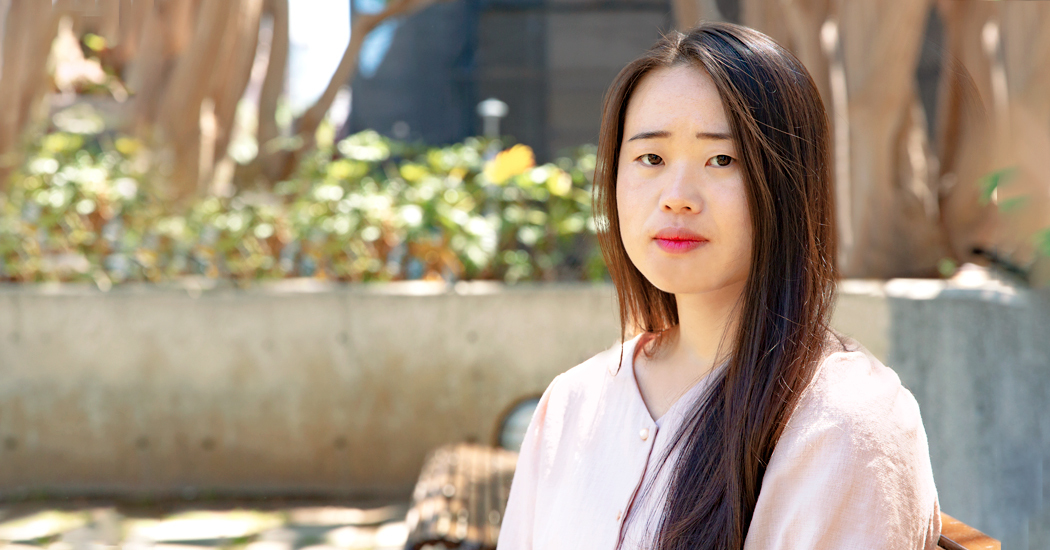
The man who bought me lived with his parents. They were afraid I would run away so they were always watching me. I was not even allowed to go to the bathroom without their permission. One morning, I started feeling sick so they took me to a local hospital.After some medical tests, the family brought me back to the house and everyone was smiling and talking. I was so confused. Someone called a North Korean woman who lived in my village and asked her to interpret the news for me. I was pregnant. As everyone celebrated, I felt even more hopeless.
This pregnancy would make my escape impossible. In North Korea, I had heard that if you jump off a high place or carry heavy things while you’re pregnant, you’ll have a miscarriage. So I tried to jump off the highest tree in the backyard, and carried around heavy buckets of water. But nine months later, I gave birth to a healthy baby daughter.
For the first few days after her birth, I didn’t even want to look at her. I was sorry and ashamed for feeling that way, but I couldn’t help resenting her. But as the days passed, my daughter began to recognize my face, and she would greet me with a big smile and open arms whenever I walked into the room. Her smile and joyful laughter began to melt away my troubles and hardships.
For the next two years, my daughter became my only reason to live.
Then one day, a North Korean woman who had also been sold into the same village introduced me to a South Korean man. He told me about South Korea, and the possibility of a free life, and said he offered to help me get there. But he warned me that the journey through China and Southeast Asia would be too dangerous for a young child. I was so torn. This was my chance to finally be free from this man and from the constant fear of being caught and sent back to North Korea. But how could I leave my child, the only joy in my life?

I was afraid I would never get an opportunity like this again , so I made the extremely difficult decision to go to South Korea, and I vowed to come back to China as soon as I could to get my daughter. In the early morning of my departure, I held my daughter in my arms as she slept and cried. I thought about the moment she would wake up and cry because I was not there. It reminded me of the day that my own mother had left me. I had felt so lonely and wondered for so long why she had abandoned me. I resented her for giving birth to me if she wasn’t interested in raising a child. And now I had to do the same thing to my own daughter.
I clenched my fists as hard as I could to hold back the tears, and I told the family I was making a trip to the market. I grabbed the bag of clothes I’d hid in the bush the day before, and headed to the bus station. I cried every day for the next three months thinking about my daughter. During my journey out of China, there were many nights when I woke up thinking I’d heard my daughter’s voice calling out “mommy.” One night, I didn’t want to wake everyone up so I went behind the curtain to cry, and I found another woman who was already there crying. She had also left her child behind to escape with my group. We sat behind that curtain in the safe house, weeping and hugging each other.
I finally made it to South Korea in 2013 with the help of Liberty in North Korea. I am currently in my last year of studying social work, and I want to devote my life to helping North Korean women who have endured the same trauma that I have. Although adjusting to a new society is difficult at times, I am determined to work hard so that one day I can bring my daughter to South Korea to be with me.
I should not be here today - I am one of the lucky ones.
At this very moment, women are being treated like a commodity and are being sold to older Chinese men. A recent report estimated that 60% of the North Korean female refugees in China are trafficked into the sex trade. 50% of those trafficked are forced into prostitution, 30% are in a forced marriage, and 15% are working in the cyber sex industry.
I am here as a survivor to share the darkest moments from my past so that I can help bring an end to the exploitation of other North Korean women refugees.
For North Korean women, escaping from North Korea is not the end of their journey but the beginning of their fight for freedom.
Please extend your love and give your support so that more North Korean people will find true freedom and safety. Thank you. I am grateful and hopeful. I am Joy.

See what life is like for North Korean women who are sold in China in the short film "Sleep Well, My Baby". Based on true stories from women rescued through LiNK.
Read Joy’s full journey from escaping North Korea to being sold in China, and finally reaching freedom through LiNK’s rescue routes in our 3-part series here!
Foreign Media in North Korea - How Kpop is Challenging the Regime
Movies, TV shows, and music hold power. They’re a way for us to connect through common experiences, reckon with different sides of humanity, and revel in the beauty of being here at all. They transport us to another time and place- perhaps one of our imaginations- and most importantly, allow us to dream and imagine a limitless future.
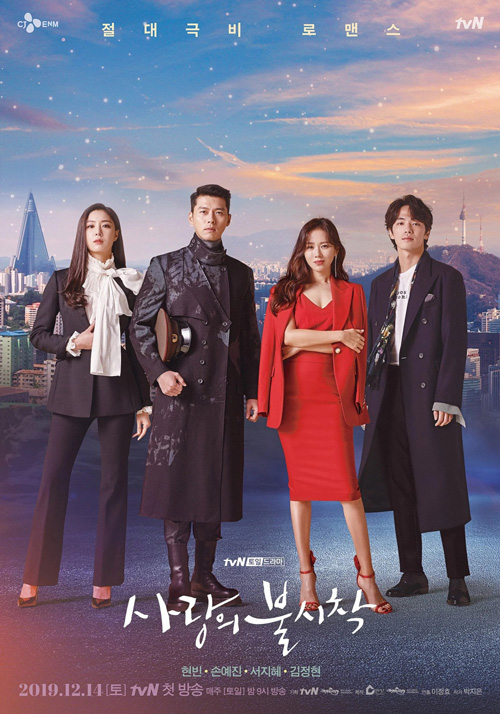
In recent years, South Korean media and entertainment has gained international recognition. People like Hyun Bin and Son Yejin, the stars of popular Korean drama Crash Landing on You, have become household names, while Parasite swept the 2020 Academy Awards and music from K-pop groups like BTS are charting globally.
Meanwhile, just across the border, North Korea remains one of the most closed societies in the world. Yet even in the “hermit kingdom,” foreign media is accelerating empowerment of the people and change within the country!
Forced Isolation and the Regime’s Information Monopoly
The North Korean government has maintained power for decades through a system of imposed isolation, relentless indoctrination, and brutal repression. A complete monopoly on information and ideas within the country has been key- outside media threatens to challenge the legitimacy of their propaganda, and by extension, their control.
The 2014 United Nations Commission of Inquiry on Human Rights in North Korea reported an almost complete denial of the right to freedom of thought, conscience, and religion as well as of the rights to freedom of speech, opinion, expression, and association.
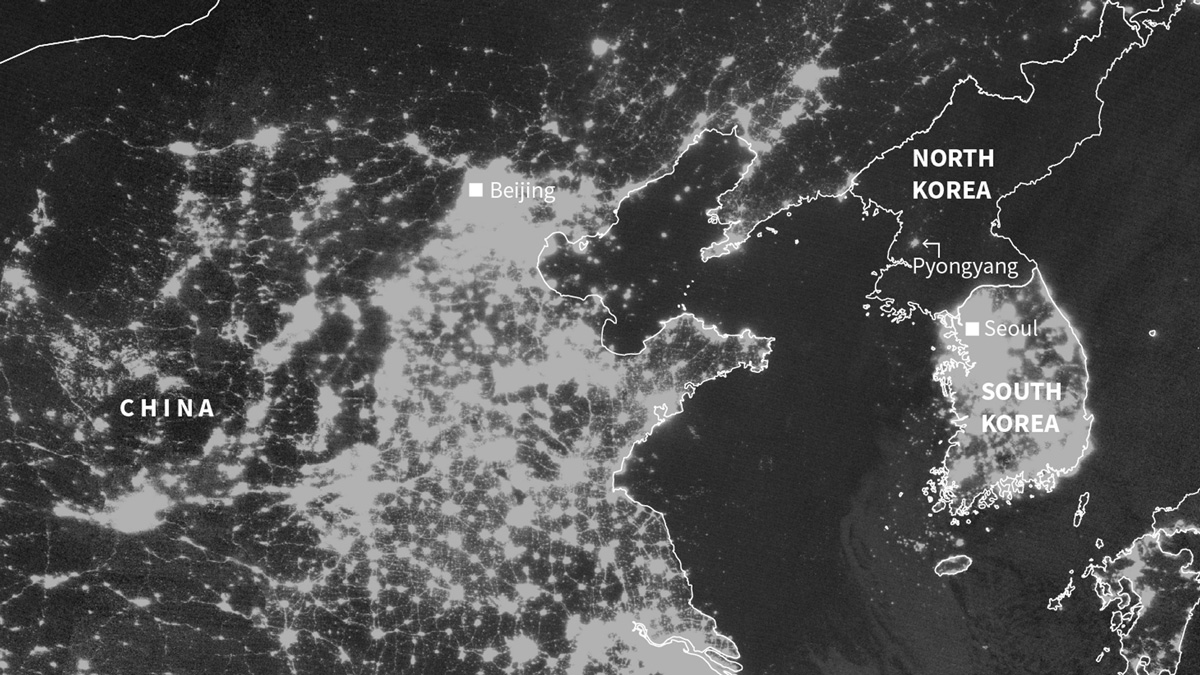
The regime employs a range of strategies to enforce information control:
- Restricting movement across borders and within the country
- Random house searches
- Severe punishment, including public executions, to deter foreign media consumption and sharing
- Sophisticated digital surveillance
- Jamming phone signals and locating users through signal triangulation
- Mobile OS file signature system that only permits government-approved apps and files
The Spread of Foreign Media
Despite this isolation and unparalleled internal restrictions, the North Korean people have been quietly changing their country from within, including through foreign media access. Through market activity and the movement of people and goods across the Chinese border, they have forced the gradual opening up of their society. Movies and music are smuggled into the country on USBs, SD and MicroSD cards, and small portable media players, offering illicit access to information from the outside world.
With lights off and windows shuttered, North Koreans will watch foreign media despite the risks. If all else fails, bribes are a way for people to reduce punishment if caught. Most North Korean police and government officials rely on bribes to survive, and some defectors complain that they are actually the biggest consumers of foreign media because they confiscate so much.

Information Technology in North Korea
Within North Korea, a broad range of information technologies are available, although they should be registered with authorities. Laptops and computers officially run on a government operating system, Red Star OS, while the North Korean intranet, Kwangmyong, is air-gapped from the internet and heavily surveilled. However, in practice, many North Koreans have non-networked devices used for games, editing software, watching videos, and to copy, delete and transfer media on removable devices.
Mobile phones are also common with approximately 6 million on the North Korean network, meaning roughly 1 in 4 people have one. These North Korean phones generally cannot make international calls and the operating system limits users to approved state media (programs have been developed to bypass this security). On the other hand, smuggled Chinese phones can be used in border regions on the Chinese network. These have been crucial for staying in touch with relatives who have escaped or defected, who often send back money and information from the outside world.
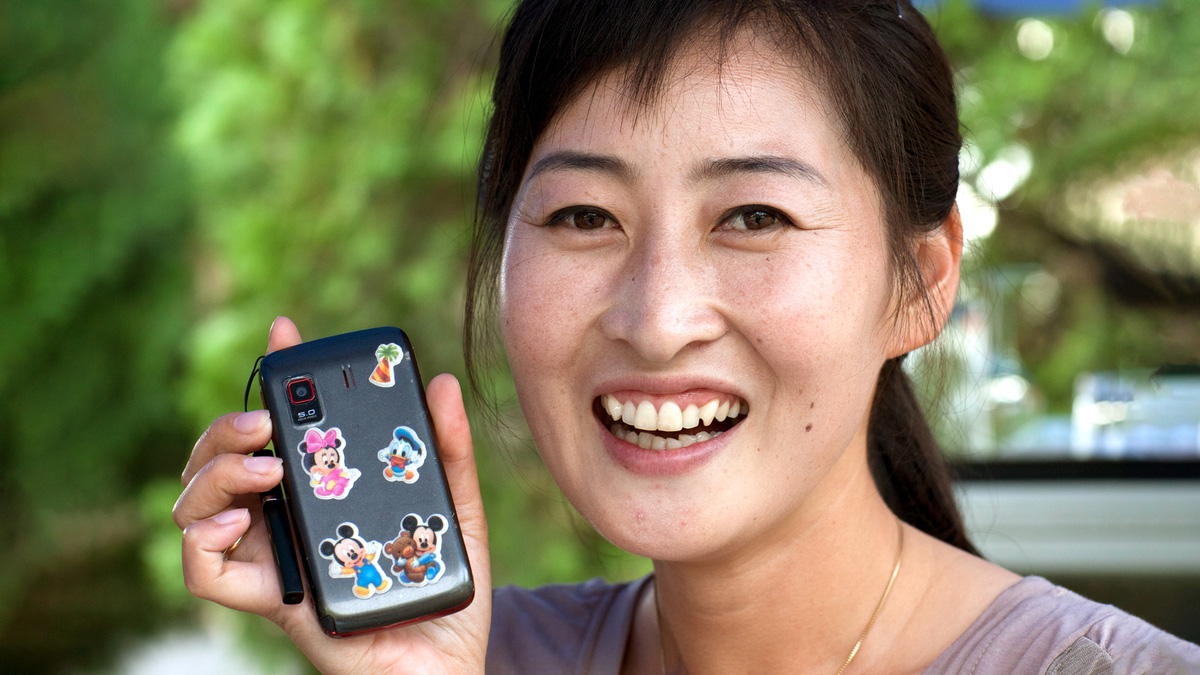
Radios are the only channel of foreign media and news available real-time across the country. While they should officially be registered and fixed to North Korean stations, it is relatively easy to tamper with radio sets to pick up foreign broadcasts. In border regions, some TVs can also pick up live programming from South Korea and China. Traditionally, TVs were connected to DVD players, but newer LCD televisions also have direct USB input ports.
How Foreign Media Changes Perceptions
Among foreign media, entertainment from South Korea is particularly attractive, produced in the same base language by people with the same ancestry. They contain glimpses of rich and free realities just across the border. In comparison, domestic North Korean media seems old-fashioned and disingenuous, designed to reinforce the regime’s ideologies.
As North Koreans learn more about life, freedom and prosperity in the outside world, and their own relative poverty, the regime’s ideology and control are eroded.
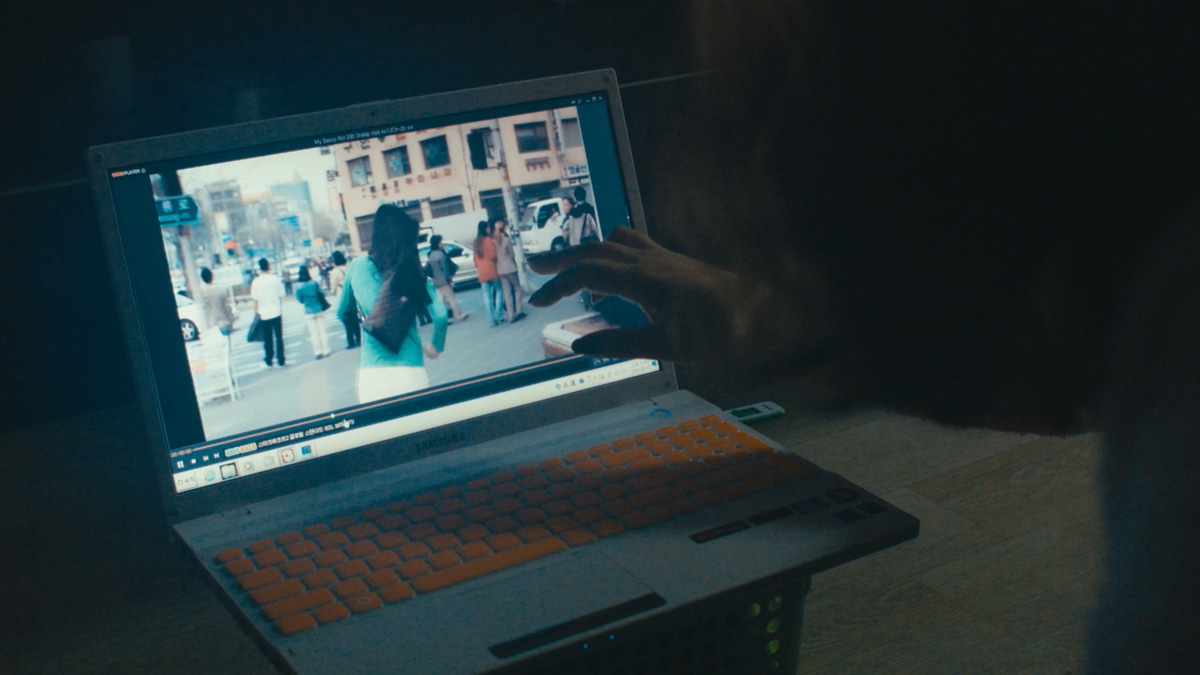
“At first you see the cars, apartment buildings, and markets and you think it must be a movie set. But the more you watch, there’s no way it can be just a set. If you watch one or two [movies] it always raises these doubts, and if you keep watching you know for sure. You realize how well South Koreans and other foreigners live.”
– Danbi, escaped North Korea in 2011
Empowered by foreign media, North Koreans are exploring their creativity and potential through everyday acts of resistance- using South Korean slang, copying fashion styles, and sharing pop culture references. In this culture war, Kim Jong-un has called for crackdowns on "unsavory, individualistic, anti-socialist behavior" among young people to restrict freedom of expression.
Foreign media also facilitates shared acts of resistance. People will swap USB devices with trusted friends and neighbors, increasing confidence in one another through a symmetrical transaction. Some people may also watch and discuss movies and shows together, increasing the media’s subversive influence and creating social networks.
The Regime’s Response
During the pandemic, we’ve seen unprecedented levels of isolation and restrictions, closing off the country more than ever before. To buttress control, Kim Jong Un has simultaneously increased crackdowns and punishments on foreign media consumption. In December 2020, the “anti-reactionary thought law” made watching foreign media punishable by 15 years in a political prison camp.
While the situation is harrowing, the government’s extreme response underscores the power of foreign media. The regime recognizes that social changes driven by North Korean people are a threat to their authority and control in the long term.
Accelerating Foreign Media Access and Change
Moving forward, increasing access to outside information is one of the most effective ways to help the North Korean people and bring forward change.
Information and technology support for North Korean people has historically been an under-utilized and under-invested strategy. LiNK Labs is our area of work focused on this opportunity- we’re developing technologies, networks, and content to empower North Korean people with access to information and ideas from the outside world.




